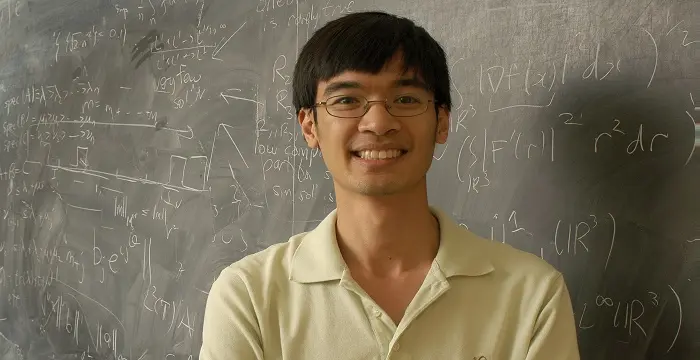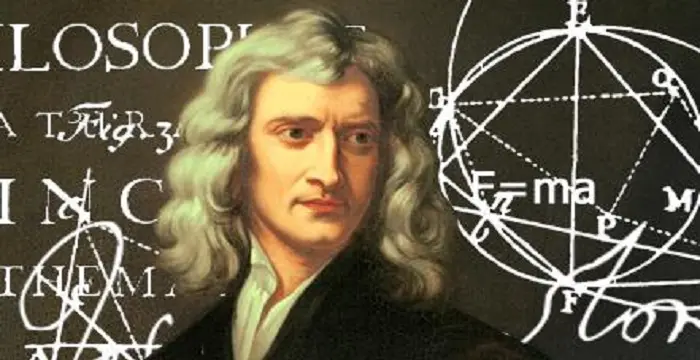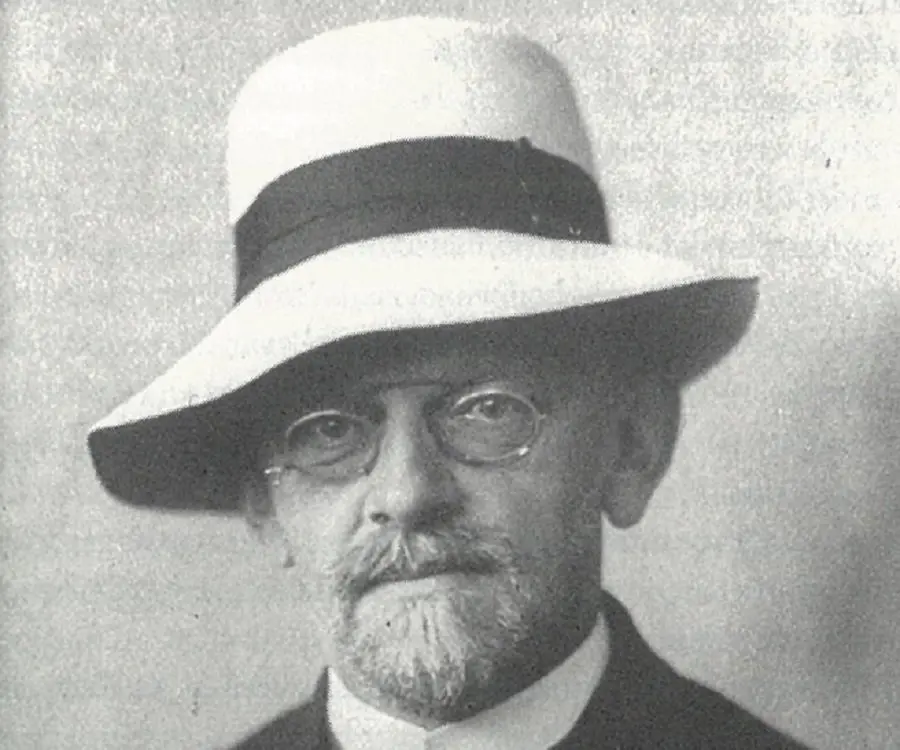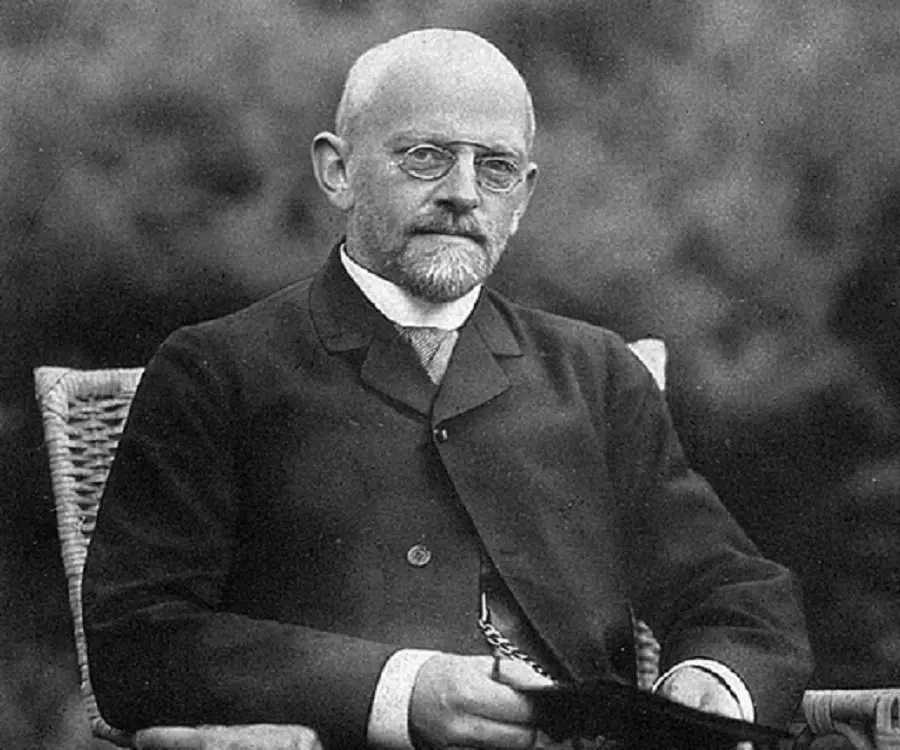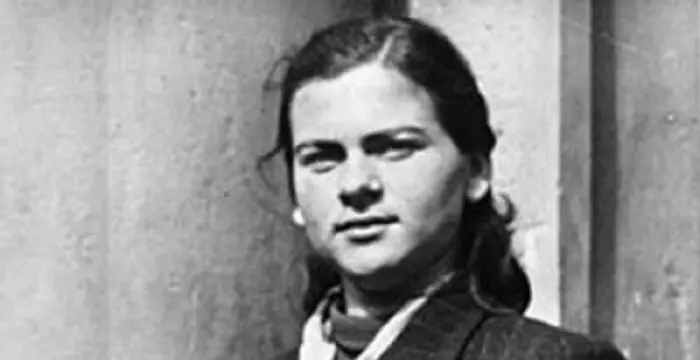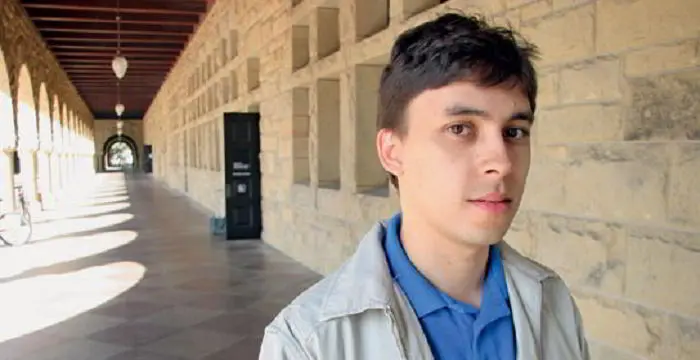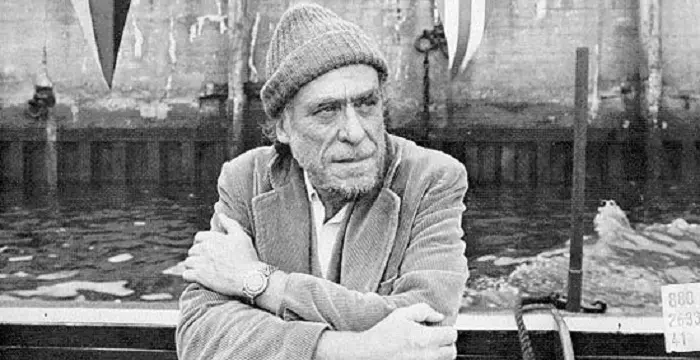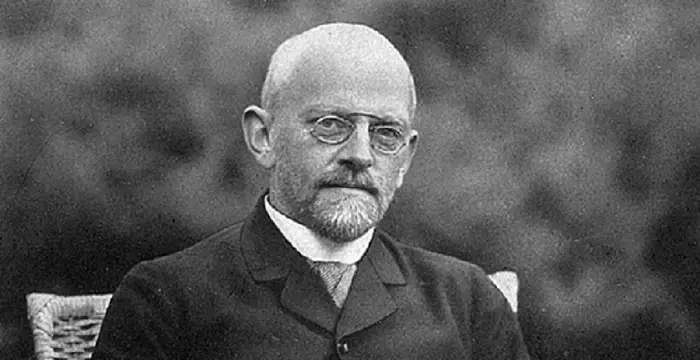
David Hilbert - Mathematicians, Life Achievements and Life
David Hilbert's Personal Details
David Hilbert is considered to be one of the most influential mathematicians of the 19th and 20th centuries
| Information | Detail |
|---|---|
| Birthday | January 23, 1862 |
| Died on | February 14, 1943 |
| Nationality | German |
| Famous | Scientists, Mathematicians |
| Spouses | Käthe Jerosch |
| Universities |
|
| Birth Place | Königsberg or Wehlau, Province of Prussia (today Znamensk, Kaliningrad Oblast, Russia) |
| Gender | Male |
| Father | Otto Hilbert |
| Mother | Maria Therese Erdtmann |
| Sun Sign | Aquarius |
| Born in | Königsberg or Wehlau, Province of Prussia (today Znamensk, Kaliningrad Oblast, Russia) |
| Famous as | Mathematician |
| Died at Age | 81 |
// Famous Mathematicians
Grigori Perelman
Grigori Perelman is a Russian mathematician who is best known for his contributions to Riemannian geometry and geometric topology. Check out this biography to know about his childhood, family life, achievements and fun facts about him.
Terence Tao
Terence Tao is an Australian- American mathematician who has contributed enormously to the field of mathematics. Check out this biography to know about his childhood, family life and achievements.
Isaac Newton
Isaac Newton was an English scientist and mathematician, who discovered gravitation and Newtonian Mechanics. Read this biography to find more on his life.
David Hilbert's photo
Who is David Hilbert?
David Hilbert was a renowned German Mathematician works helped pave the path for modern mathematical research in the 20th century. He was the first to distinguish between mathematics and metamathematics. Regarded as one of the finest mathematicians of the twentieth century, David Hilbert left an indelible mark with his vast knowledge in different divisions of mathematics and was also the first to discover the invariant theory. His strong foothold in mathematics proved significant in areas ranging from number systems to geometry and extended mathematics to mathematical physics. His work on integral equations laid the foundation for research in functional analysis. After completing his Ph.D., he began his teaching career at the University of Königsberg, where he also collaborated with fellow mathematicians Hermann Minkowski and Adolf Hurwitz. Later, he joined the University of Göttingen, the global mathematical hub of the century, as Professor of Mathematics. Initially, he worked on number theory and abstract algebra, but before long he turned his attention to integral equations and completely transformed the field. Many important mathematical terms and theorems have been named after him, including Hilbert space, Hilbert curves, Hilbert classification, and Hilbert inequality. At the Paris International Congress of Mathematicians in 1900, he presented 23 important questions that intrigued mathematicians over the century. A great leader and spokesperson for the discipline, he was absolutely hopeful that future mathematicians would find the solution to the 23 problems. Even though he retired before the rise of Nazism, he lived to see prominent Jewish faculty members being ousted from the University of Göttingen in 1933.
// Famous Scientists
Juliane Koepcke
Juliane Koepcke is a German-Peruvian biologist, who was the lone survivor among the 92 passengers and crew of the ill-fated LANSA Flight 508 that crashed in the Peruvian rainforest on 24 December 1971. Know more about her life in this biography.
Henry Cavendish
Henry Cavendish was a theoretical chemist and physicist, renowned for discovery of hydrogen and calculation of the mass of earth. To know more about his childhood, profile, timeline and career read on
Konstantin Tsiolkovsky
Konstantin Tsiolkovsky was a Russian rocket scientist and a pioneer of astronautics. This biography provides detailed information about his childhood, family, personal life, career, achievements, etc.
Childhood & Early Life
David Hilbert was born on 23 January 1862 to Otto Hilbert and Maria Therese Hilbert. He was born either in Königsberg or Wehlau, Province of Prussia (today Znamensk, Kaliningrad Oblast, Russia).
His father Otto was a reputable city judge and his mother Maria was interested in philosophy and astronomy. Right from his childhood, he excelled in mathematics and showed interest in language.
In 1872, he joined Friedrichskolleg Gymnasium. Later in 1879, he moved to, and eventually graduated from the Wilhelm Gymnasium.
After graduation, he decided to stay close to home. In autumn 1880, he enrolled at the University of Königsberg to study mathematics. Two years later, he befriended a younger talented Polish-German mathematician Hermann Minkowski at the university.
Career
In 1884, David Hilbert and Minkowski were joined by another German mathematician, Adolf Hurwitz who had arrived from Göttingen as an Associate Professor. The trio began a powerful and productive collaboration that greatly influenced their mathematical careers.
Hilbert received his doctorate degree in 1885. His dissertation titled ‘On the invariant properties of special binary forms, in particular the spherical harmonic functions’ was completed under the guidance of Ferdinand von Lindemann. After finishing his Ph.D. he spent the winter at the University of Leipzig and then Paris.
He continued at the University of Königsberg as a Senior Lecturer of Mathematics from 1886 - 1895.Thereafter in 1895, he became Professor of Mathematics at the University of Göttingen.
The University of Göttingen was the 20th century global hub of renowned mathematicians. It was here that he enjoyed the company of notable mathematicians like Emmy Noether and Alonzo Church. Some of his prominent students were Hermann Weyl and Ernst Zermelo.
He supervised the doctoral studies of 69 Ph.D. students at Göttingen, many of whom like Otto Blumenthal, Felix Bernstein, Richard Courant, Erich Hecke, Hugo Steinhaus, and Wilhelm Ackermann later became celebrated mathematicians themselves.
In 1900, he listed 23 unsolved mathematical problems at the International Congress of Mathematicians in Paris. The concise list set the stage for the mathematical works of the 20th Century.
In 1902, he became the co-editor of the world’s leading mathematical journal, ‘Mathematische Annalen’. He continued in the position till 1939. He retired from the University of Göttingen in 1930, aged 68.
In the build-up to the World War II, the Nazis removed many of the well-known Jewish faculty members from University of Göttingen including Hermann Weyl, Emmy Noether and Edmund Landau.
He co-authored an important book ‘Grundlagen der Mathematik’ which was published in two volumes in 1934 and 1939. The book was intended as a follow-up to Hilbert-Ackermann book ‘Principles of Mathematical Logic’ (1928).
Along with Minkowski, he had a keen interest in mathematical physics. During his lifetime, three Nobel laureates for Physics—Max von Laue, James Franck, and Werner Heisenberg—spent considerable part of their careers at the University of Göttingen.
Major Works
In 1899, he published a book ‘The Foundations of Geometry’ in which he illustrated a set of axioms that removed the errors from Euclidean geometry. He also aimed to axiomatize mathematics.
In 1900, he delivered a lecture titled ‘Mathematical Problems’ before the Paris International Congress of Mathematicians. He listed 23 mathematical problems whose solutions were to be found by the 20th century mathematicians. These problems are now referred to as Hilbert’s problems and many of them remain unsolved even to this day.
David Hilbert excelled in various fields of mathematics such as axiomatic theory, algebraic number theory, invariant theory, class field theory and functional analysis. He invented ‘Hilbert space’, one of the most important concepts of functional analysis and modern mathematical physics.
He discovered mathematical fields such as modern logic and met mathematics. ‘Satz 90’, a theorem built on relative cyclic fields was another important contribution of his work.
Awards & Achievements
In 1905, Hilbert received a special citation at the first award ceremony of the Wolfgang Bolyai prize of the Hungarian Academy of Sciences.
Personal Life & Legacy
David Hilbert was baptized and brought up according to the Reformed Protestant Church. Later on however, he became a nonbeliever. He argued that mathematical truth was independent of the existence of God.
In 1892, he married Käthe Jerosch. While at Königsberg, the couple had a son named Franz Hilbert (1893–1969). All through his life, Franz suffered from an undiagnosed psychological illness which caused terrible disappointment to his mathematician father.
By the time he died on 14 February 1943, the Nazis had already re-staffed almost the whole university, replacing all the Jews. His funeral was attended by very few people and the news of his death came to light months after he died.
Trivia
He considered famous fellow mathematician, Hermann Minkowski to be his “best and truest friend”.
// Famous Aquarius Celebrities peoples
Jessii Vee
Check out all that you wanted to know about Jessii Vee, the famous Canadian Vlogger & YouTube Personality; her birthday, her family and personal life, her boyfriends, fun trivia facts and more.
Luara Fonseca
Luara Fonseca, known on the web as “luaraff,” is a musical.ly star. Check out this biography to know about her childhood, family life, achievements and fun facts about her.
Shane Blanchard
Shane Blanchard is an American TV actor. Let’s take a look at his family and personal life including age, birthday, net worth, family life and some fun facts.
David Hilbert biography timelines
- // 23rd Jan 1862David Hilbert was born on 23 January 1862 to Otto Hilbert and Maria Therese Hilbert. He was born either in Königsberg or Wehlau, Province of Prussia (today Znamensk, Kaliningrad Oblast, Russia).
- // 1872In 1872, he joined Friedrichskolleg Gymnasium. Later in 1879, he moved to, and eventually graduated from the Wilhelm Gymnasium.
- // 1884In 1884, David Hilbert and Minkowski were joined by another German mathematician, Adolf Hurwitz who had arrived from Göttingen as an Associate Professor. The trio began a powerful and productive collaboration that greatly influenced their mathematical careers.
- // 1892In 1892, he married Käthe Jerosch. While at Königsberg, the couple had a son named Franz Hilbert (1893–1969). All through his life, Franz suffered from an undiagnosed psychological illness which caused terrible disappointment to his mathematician father.
- // 1895He continued at the University of Königsberg as a Senior Lecturer of Mathematics from 1886 - 1895.Thereafter in 1895, he became Professor of Mathematics at the University of Göttingen.
- // 1899In 1899, he published a book ‘The Foundations of Geometry’ in which he illustrated a set of axioms that removed the errors from Euclidean geometry. He also aimed to axiomatize mathematics.
- // 1900In 1900, he listed 23 unsolved mathematical problems at the International Congress of Mathematicians in Paris. The concise list set the stage for the mathematical works of the 20th Century.
- // 1900In 1900, he delivered a lecture titled ‘Mathematical Problems’ before the Paris International Congress of Mathematicians. He listed 23 mathematical problems whose solutions were to be found by the 20th century mathematicians. These problems are now referred to as Hilbert’s problems and many of them remain unsolved even to this day.
- // 1902In 1902, he became the co-editor of the world’s leading mathematical journal, ‘Mathematische Annalen’. He continued in the position till 1939. He retired from the University of Göttingen in 1930, aged 68.
- // 1905In 1905, Hilbert received a special citation at the first award ceremony of the Wolfgang Bolyai prize of the Hungarian Academy of Sciences.
- // 1928 To 1939He co-authored an important book ‘Grundlagen der Mathematik’ which was published in two volumes in 1934 and 1939. The book was intended as a follow-up to Hilbert-Ackermann book ‘Principles of Mathematical Logic’ (1928).
- // 14th Feb 1943By the time he died on 14 February 1943, the Nazis had already re-staffed almost the whole university, replacing all the Jews. His funeral was attended by very few people and the news of his death came to light months after he died.
// Famous German peoples
Jordan Carver
Jordan Carver is a famous German model. Let’s take a close look at her personal life, including her age, career, net worth, achievements and some fun facts.
Jürgen Klopp
Jürgen Klopp is a German football manager, and a former professional football player. Check out this biography to know more about his childhood, family, personal life, etc.
Irma Grese
Irma Grese was a notorious German Nazi concentration camp guard during the Second World War. This biography profiles her childhood, life, horrifying acts, death and other facts.
Juliane Koepcke
Juliane Koepcke is a German-Peruvian biologist, who was the lone survivor among the 92 passengers and crew of the ill-fated LANSA Flight 508 that crashed in the Peruvian rainforest on 24 December 1971. Know more about her life in this biography.
Jawed Karim
Jawed Karim is a German-American internet entrepreneur, technologist and co-founder of the video-sharing website, YouTube. Check out this biography to know about his childhood, family, personal life, achievements, age, etc.
Charles Bukowski
Charles Bukowski was a German-born American novelist, short story writer and poet. With this biography, learn in details about his childhood, life, works, career and timeline
David Hilbert's FAQ
What is David Hilbert birthday?
David Hilbert was born at 1862-01-23
When was David Hilbert died?
David Hilbert was died at 1943-02-14
Where was David Hilbert died?
David Hilbert was died in Germany
Which age was David Hilbert died?
David Hilbert was died at age 81
Where is David Hilbert's birth place?
David Hilbert was born in Königsberg or Wehlau, Province of Prussia (today Znamensk, Kaliningrad Oblast, Russia)
What is David Hilbert nationalities?
David Hilbert's nationalities is German
Who is David Hilbert spouses?
David Hilbert's spouses is Käthe Jerosch
What was David Hilbert universities?
David Hilbert studied at University of Königsberg (1880 – 1885), Wilhelm Gymnasium (1879 – 1880), Friedrichskolleg Gymnasium (1872 – 1879)
Who is David Hilbert's father?
David Hilbert's father is Otto Hilbert
Who is David Hilbert's mother?
David Hilbert's mother is Maria Therese Erdtmann
What is David Hilbert's sun sign?
David Hilbert is Aquarius
How famous is David Hilbert?
David Hilbert is famouse as Mathematician

